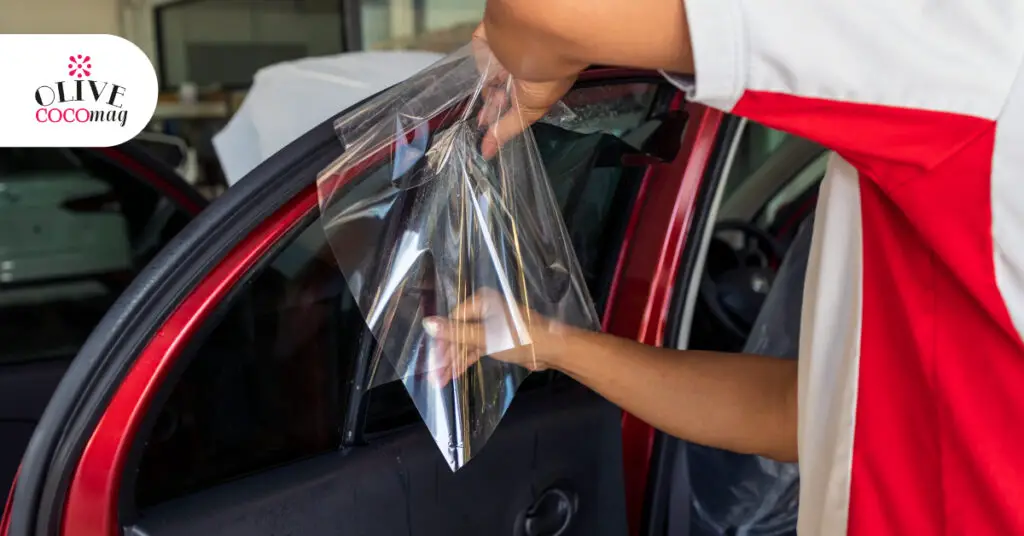There is a major concern about the problem “do windows block UV rays?” This is because there has been a rapid increase in skin cancers. Ultraviolet radiation is the reason for nine out of ten cases related to non-melanoma skin cancers. UV rays are also the reason for 65% of melanoma cancers. UV exposure can be both direct and indirect. Direct exposure to harmful radiation can happen when walking out in the sun without proper protection. The indirect UV exposure happens even when you are inside the home or office. Glasses are able to block certain harmful radiation. Certain types of treated glasses have the additional ability to block more radiation.

Table of Contents
Types of UV Radiation
The two main types of ultraviolet radiation that reach the earth are, namely, UVA and UVB. UVC is also a type of ultraviolet radiation, but it is too weak to reach the earth. Out of the UV radiation that penetrates the atmosphere and reaches the earth, 95% is UVA. UVB percentage is as small as 5%. The wavelength of UVA ranges from 315nm to 400nm. The wavelength of UVB is low and ranges between 280nm and 315nm. Since the wavelength of UVA is higher, it has a more penetrating ability than UVB. This can affect the cells deep inside the skin.
How UVA and UVB affect the Skin
The content of UVA radiation out of the ozone layer is about 500 times more than UVB radiation. Direct skin-damaging such as aging of the skin, wrinkling, and photoaging are caused by UVA rays. In addition to this, these rays also increase cancer development in the skin. Mutations are created due to the damage caused by UVA radiation on melanocyte cells. As this changes the cell DNA of cells, it can even lead to melanoma, which is a severe form of skin cancer.
Even though UVB radiation has shorter wavelengths, there are higher energy levels in them. This would cause damage to both surface and DNA of the skin. Sunburns occur mostly due to these radiations. There are over three million Americans suffering annually from non-melanoma skin cancers and over one million with melanoma.
Do Windows Block UV Rays?

Normal glass does not block UV radiation. Studies show that ordinary glass allows over 73% of UVA radiation to pass through it. However, all glasses are able to block UVB rays. So, the answer to the question “do windows block UV rays?” is yes, they do block UVB rays. However, if you want to block all UV rays, then the windows would need to be treated. The normal car windows also block UVB radiation, but not UVA rays. Only the windshield blocks UVA rays. This is because they cannot be tinted or darkened and needs to be of high visible light transmission ability. Other windows can be tinted with proper car window tints to block UV rays.
Protecting Skin from UVA
Window tinting is a better investment than using window shades to block harmful radiations. Shades and blinds offer proper privacy, but not effective enough for protection against UV rays. When considering different types of window tinting, there are window tints especially for residences, commercial buildings, and also vehicles. Some of the window films are mainly intended for aesthetic purposes only. However, most consumers seek the advantage of proper protection from UV radiation.

Most UV blocking window films are very efficient so that they can block up to 99% of UV radiation while preventing 50% or even more IR rays. Window films do not darken the windows unnecessarily. But if you need dark windows for privacy concerns, then you have the option of getting darker window films as in the Window Tinting Shades Chart.
Most residential window films are transparent and allow abundant sunlight to penetrate the interior. However, the harmful radiations are filtered and blocked. Neutral colored window tint films are the most suitable type and would be even invisible. Commercial building window films are most commonly installed concerning privacy and aesthetic appeal. This is because the requirements are different than homes and vehicles.
Protecting Property from UV Rays
UV blocking window films also protect your home and vehicle interior. The damage caused to curtains, carpets, furniture, and upholstery is minimized from these window films. Constant exposure of these items to harmful radiation causes fading of fabric and polish while causing the furniture to crack. Since a good film can also block IR rays, it would also keep the interior cool.
Therefore, you would need to use low air conditioning. Even during colder seasons like winter, these films trap the internal heat without losing it through the windows. You can stay comfortably with minimal use of power to heat up your home. Therefore, having window films is beneficial in either way. This would result in low electricity charges for your home while also cost less fuel in your vehicle.
Treating Windows to Block UV Rays

Since standard windows are not efficient in blocking all harmful radiation, the best remedy is to install window tint films on your windows. There are various types of window films ranging from normal regular window films to the advanced type of nanocarbon ceramic window films. The different technological advancements have brought out these various types. The regular window film is made of simple dyed polyester films and has limited ability to filter the sun rays. The most advanced nanocarbon ceramic films have the latest technological developments that bring the positive aspects of both carbon and ceramic particles. This blocks more harmful radiation than other types while ensuring proper visibility through the windows.
Treat your windows with ideal window tints. You can do it yourself with DIY kits, if you are aware of How to Tint Windows. However, make sure to take proper care of the windows after the window tint installation. You can learn more from Window Tint Aftercare Tips.
Are You Safe With Tinted Windows?

Not all glasses and windows block UV radiation. Similarly, not all window tints block harmful radiation. Some of the window films are used merely for decorative purposes. Therefore, it is always better to ensure the proper protection of your window film. If you are constantly exposed to unfiltered radiation, there is a high probability of getting skin defects. But considering even the well-tinted windows, there is a chance of getting exposed to 1% radiation for over 8 hours a day. This could even be possible to cause wrinkles, skin aging, and even skin cancer. Therefore, using additional sunscreen can bring better protection. If direct sunlight cannot be avoided, it is recommended to apply mineral sunscreen every two hours for the best protection.
Can You Get Sunburn Through Windows?
The majority of the sun’s UV radiations are blocked by tinted windows. The harmful rays that cause sunburns are blocked by glass. So, there is a very low probability of getting sunburns due to sunlight exposure through glass windows. However, this can result in severe damages beyond mere sunburns. If you think about getting vitamin D through the sunlight penetrated through a tinted window, then it might not be possible. You would have to get outside and get unfiltered sunlight.
The freckles and suntans are caused by UVA rays, which might be harmful and cause long-term damage to the skin. Over 74% of people at skin cancer clinics have developed tumors on the driving side. This shows that there is a direct connection between cancer risk and exposure to the sun while driving.
Dermatologists recommend protecting from long exposure to direct sunlight by using proper sunscreens of adequate sun protecting factors. Using a broad-spectrum sunscreen can give proper protection against both UVA and UVB radiation. Even though sunburns are less likely to occur through closed glass windows, it is advised to reduce the time spent by windows.
Additional Precautions at Home
Prevention is always better than cure. So, the best you can do is to try to reduce exposure to direct sun rays. If you haven’t tinted windows in your home, you are highly recommended to get your windows tinted with a proper window film. This can reduce the risk by a considerable amount. However, using curtains and blinds along with window films can help safeguard your health even more. However, this would reduce the amount of natural lighting and would even lead to reduced productivity.
More Protective Windows
Some windows are more protective than others. These are made of laminated and tempered glasses. Car windshields are made of these special glasses that are laminated. An additional plastic layer is included in between two layers of glass. This combination is specialized in blocking UVB radiation completely and blocking over 96% of UVA radiation.
This is a higher blocking ability in comparison to the 27% blocking ability of normal glass. Side windows of vehicles are mostly made of tempered glass. Tempered glasses are made by passing the glass through a process of high temperature and pressure. This also has the ability to block UVB radiation completely and block 71% of UVA radiation.







